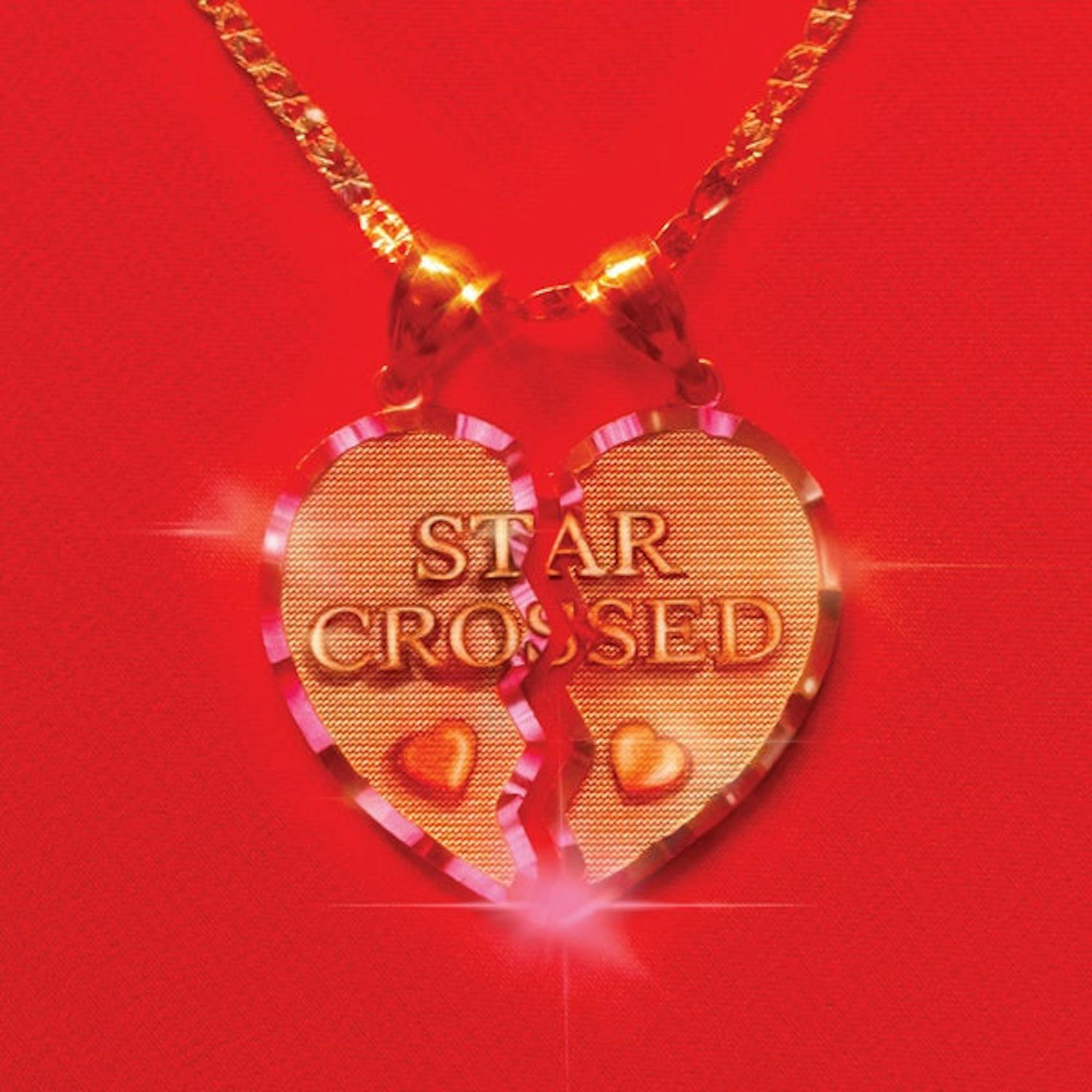Dusk came quickly for Kacey Musgraves soon after winning Album of the Year at the Grammys for her glistening piece "Golden Hour" (2018). Divorce meant the bitter end for Musgraves' most acclaimed era, and with the glow of her iridescent fourth LP fading behind her, it was time for Musgraves to pick up the pieces and pioneer forward. Despite the vicissitude, pain turned to progress, and Musgraves stitched back together her broken heart with "Star-Crossed" (2021).
Inspired by the structure of Greek tragedies, Musgraves reached deep within herself to discern the causes of her own heartbreak and connect them to the tragedies of others. As Musgraves displayed with "Golden Hour," she has a way of universalizing her own experiences. Her track "What Doesn't Kill Me" perfectly summarizes, "Golden hour faded black," and now it's time to build back up.
Opening with the cinematic title track, Musgraves cuts straight to the point: "Let me set the scene/ Two lovers ripped right at the seams." With a build of electric guitars and a choir filling the air with "oohs" and "ahhs," Musgraves pulls back the curtains as the show begins.
Bargaining is one of the five stages of grief, and Musgraves is stuck in this headspace on "Good Wife." She cries, "God, help me be a good wife/ 'Cause he needs me," but follows with her next track, "Cherry Blossom," singing, "I'm your cherry blossom, baby/ Don't let me blow away." There's parallelism between the perspectives in these two tracks: one longing to keep her partner, another longing for her partner to want her. Her ethereal vocals are on full display as she fades in and out while cutting in to highlight the pain and loss she experienced as her marriage declined.
As "Simple Times" rolls in, Musgraves is ready to take a break. "Wish that I could put this game on pause/ Skip this round, take the headset off," she laments, as the hardship she faces is all consuming. This chapter is unpleasant, and Musgraves reminisces on the "Simple Times" she had. The electronic flows of "Cherry Blossom" permeate into "Simple Times," continuing to seamlessly flow between scenes in her tragedy. Her attention to detail is significant, putting meticulous emphasis on the bittersweet reflection of her marriage.
Next, Musgraves digs out her roots on "If This Was a Movie.." referencing her debut album "Same Trailer Different Park" (2013). She alludes, "I'd be your silver lining/ Not a cloud full of rain," tying back to her 2013 track "Silver Lining" where she prophesizes, "But if you're ever gonna find a silver lining/ It's gotta be a cloudy day." Note that there's no rain in her 2021 rendition, as she closes out the track by realizing, "We'd fall back into place/ If this was a movie/ But it’s not a movie." True Musgraves fans will notice this allusion, and it's worth noting the ill-fated advice she told herself eight years prior only to have this love, as the title track says, "ripped right at the seams."
As the album progresses, Musgraves begins the long journey to recovery and coming to terms with her heartbreak. In "Justified," though she expresses, "Healin' doesn't happen in a straight line," she acknowledges, "I shoulda treated you right."In an interview with Zane Lowe, she explains that it takes two to reach a marriage's end, so both are entitled to their own hurting and reconciliation, as "Justified" perfectly demonstrates. Musgraves continues her reflection on what could've been with "Angel." She mourns, "You'd only get the best of me/ I'd nevеr make you wanna leave." Some love isn't forever, and for Musgraves, the sun has set.
In "Breadwinner,"Musgraves dives into masculine insecurity. With the success Musgraves has achieved, it's hard to find any man to size up to her accomplishments. She warns, "He wants your shimmer/ To make him feel bigger/ Until he starts feeling insecure." If he's insecure about Musgraves' success, "Breadwinner" lets him know that he'd better take his love somewhere else.
The next two tracks, "Camera Roll" and "Easier Said" pack a more melancholic punch. When only the bright moments are captured on film, the camera roll can be a deadly place to scroll. One of the most poetic lines in the entire body of work, "Chronological order ain't nothing but torture," strikes hard on "Camera Roll."Musgraves isn't ready to hit delete, and this painful recollection is agonizing. Attempting to push past this heartbreak, Musgraves notes, "It ain't easy to love someone/ I've been tryin' and I found out/ That it's easier said than done" on "Easier Said."
As she emphasized in "Justified," the process of healing is a rollercoaster, and in "Hookup Scene," Musgraves reflects that while searching for temporary love, "You get your fill and leave empty." She's craving a connection she's lost, and realizing that there were situations she could've worked through in her marriage. However, she begins to transcend this heartbreak in "Keep Lookin' Up," "What Doesn't Kill Me" and "There is a Light."
The most emphatic lines from these three tracks exist within "What Doesn't Kill Me," when Musgraves exclaims, "Golden hour faded black ... What doesn't kill me/ Better run." She's dusting off the ash from her scorched love, and she will continue to "keep lookin' up" despite seeing "true love turn into pain." Closing out the album with a rendition of Violeta Parra's song"Gracias a la Vida," Musgraves is grateful for life, which has provided her with so much love and light.
Musgraves has overcome the immense challenge of returning from her greatest success and darkest heartbreak effortlessly with "Star-Crossed." For that, she brings to the table a stunning album filled with devastating lows, all while ascending to empyrean heights once again upon conclusion. The piece feels complete, and her decision to structure the album so particularly to follow a tragic arc highlights both her growth as an artist and commitment to pushing the boundaries of music.






